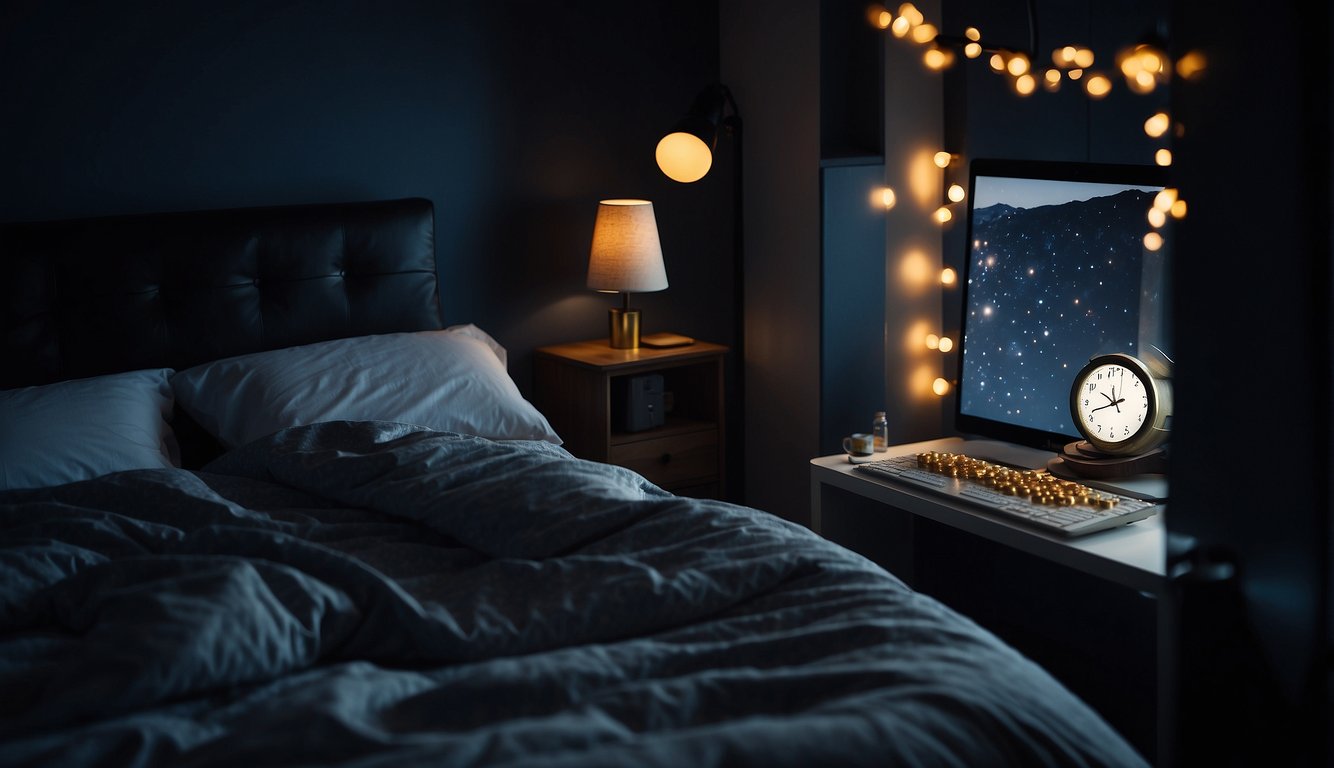TheHerbProf.com is a treasure trove of knowledge for those interested in natural healing and herbal remedies. The website is run by Paul Johnston MD. A naturopathic who has not only received extensive education in the field but also has personal experience in self-healing.
Insomnia and sleep disorders are common conditions that affect millions of people worldwide. Insomnia is a sleep disorder that makes it difficult to fall asleep or stay asleep, resulting in fatigue, irritability, and difficulty concentrating during the day. It can be caused by a variety of factors, including stress, anxiety, depression, and certain medications.
Sleep disorders, on the other hand, encompass a wide range of conditions that affect the quality, timing, and amount of sleep a person gets. These disorders can include sleep apnea, restless leg syndrome, and narcolepsy, among others. Sleep disorders can have serious consequences for a person’s health and well-being if left untreated, including an increased risk of heart disease, stroke, and obesity.
If you’re experiencing difficulty sleeping or suspect you may have a sleep disorder, it’s important to seek medical attention. A doctor can help you identify the underlying cause of your sleep problems and recommend appropriate treatment options. In some cases, lifestyle changes, such as improving sleep hygiene or reducing caffeine intake, may be enough to improve your sleep quality. In other cases, medications or other interventions may be required to help you get the restful sleep you need to feel your best.
Understanding Insomnia and Sleep Disorders
As someone who has struggled with sleep issues in the past, I understand how frustrating it can be to lie awake at night, unable to drift off. Insomnia and other sleep disorders can have a significant impact on our daily lives, affecting our mood, energy levels, and overall health. In this section, I’ll provide an overview of insomnia and some of the most common sleep disorders.
Types of Insomnia
Insomnia is a sleep disorder that can make it difficult to fall asleep or stay asleep. There are two main types of insomnia: acute and chronic. Acute insomnia is typically short-lived and may be caused by stress, jet lag, or other temporary factors. Chronic insomnia, on the other hand, is more long-lasting and may be the result of underlying medical or psychological issues. According to the Mayo Clinic, chronic insomnia is defined as difficulty falling asleep or staying asleep at least three nights per week for three months or longer.
Common Sleep Disorders
Insomnia is just one of many sleep disorders that can affect our ability to get a good night’s rest. Here are a few other common sleep disorders:
- Sleep apnea: This is a disorder in which a person’s breathing is interrupted during sleep, often due to a blockage in the airway. Sleep apnea can cause snoring, gasping, and other symptoms, and it has been linked to a range of health issues, including high blood pressure, heart disease, and stroke.
- Restless legs syndrome: This is a neurological disorder that causes an irresistible urge to move the legs, often accompanied by uncomfortable sensations like tingling or burning. Restless legs syndrome can make it difficult to fall asleep or stay asleep, and it can lead to daytime fatigue and other issues.
- Narcolepsy: This is a disorder that causes excessive daytime sleepiness, as well as sudden episodes of sleep known as “sleep attacks.” Narcolepsy can also cause other symptoms like cataplexy (a sudden loss of muscle control) and sleep paralysis.
Overall, sleep disorders can have a significant impact on our quality of life. If you’re struggling with insomnia or another sleep disorder, it’s important to talk to your doctor to determine the underlying cause and find an appropriate treatment plan.
Causes and Risk Factors

Insomnia and sleep disorders can be caused by a variety of factors, ranging from lifestyle and environmental factors to medical and mental health conditions. In this section, I will discuss some of the most common causes and risk factors associated with insomnia and sleep disorders.
Lifestyle and Environmental Factors
Several lifestyle and environmental factors can contribute to the development of insomnia and sleep disorders. These include:
- Stress: Stress is one of the most common causes of insomnia. When we are stressed, our bodies produce more cortisol, which can interfere with our ability to fall asleep and stay asleep.
- Age: As we age, our sleep patterns change, and we may find it more difficult to fall asleep and stay asleep.
- Pain: Chronic pain can make it difficult to get comfortable and fall asleep.
- Anxiety and Depression: Anxiety and depression can interfere with our ability to fall asleep and stay asleep.
- Substance Abuse: The use of drugs and alcohol can disrupt our sleep patterns and make it difficult to get a good night’s sleep.
- Caffeine: Caffeine is a stimulant that can interfere with our ability to fall asleep and stay asleep.
- Alcohol: Although alcohol can help us fall asleep, it can also disrupt our sleep patterns and cause us to wake up frequently during the night.
- Nicotine: Nicotine is a stimulant that can interfere with our ability to fall asleep and stay asleep.
- Diet and Obesity: A poor diet and obesity can contribute to the development of sleep disorders.
- Menopause and Pregnancy: Hormonal changes during menopause and pregnancy can disrupt our sleep patterns and make it difficult to get a good night’s sleep.
Medical and Mental Health Conditions
Several medical and mental health conditions can contribute to the development of insomnia and sleep disorders. These include:
- Sleep Apnea: Sleep apnea is a condition in which a person’s breathing is interrupted during sleep, which can cause them to wake up frequently during the night.
- Restless Leg Syndrome: Restless leg syndrome is a condition in which a person experiences an uncomfortable sensation in their legs, which can make it difficult to fall asleep and stay asleep.
- Chronic Pain: Chronic pain can make it difficult to get comfortable and fall asleep.
- Anxiety and Depression: Anxiety and depression can interfere with our ability to fall asleep and stay asleep.
- Medical Conditions: Several medical conditions, such as asthma, diabetes, and heart disease, can interfere with our ability to get a good night’s sleep.
There are many causes and risk factors associated with insomnia and sleep disorders. By understanding these factors, we can take steps to improve our sleep habits and get a better night’s sleep.
Symptoms and Diagnosis
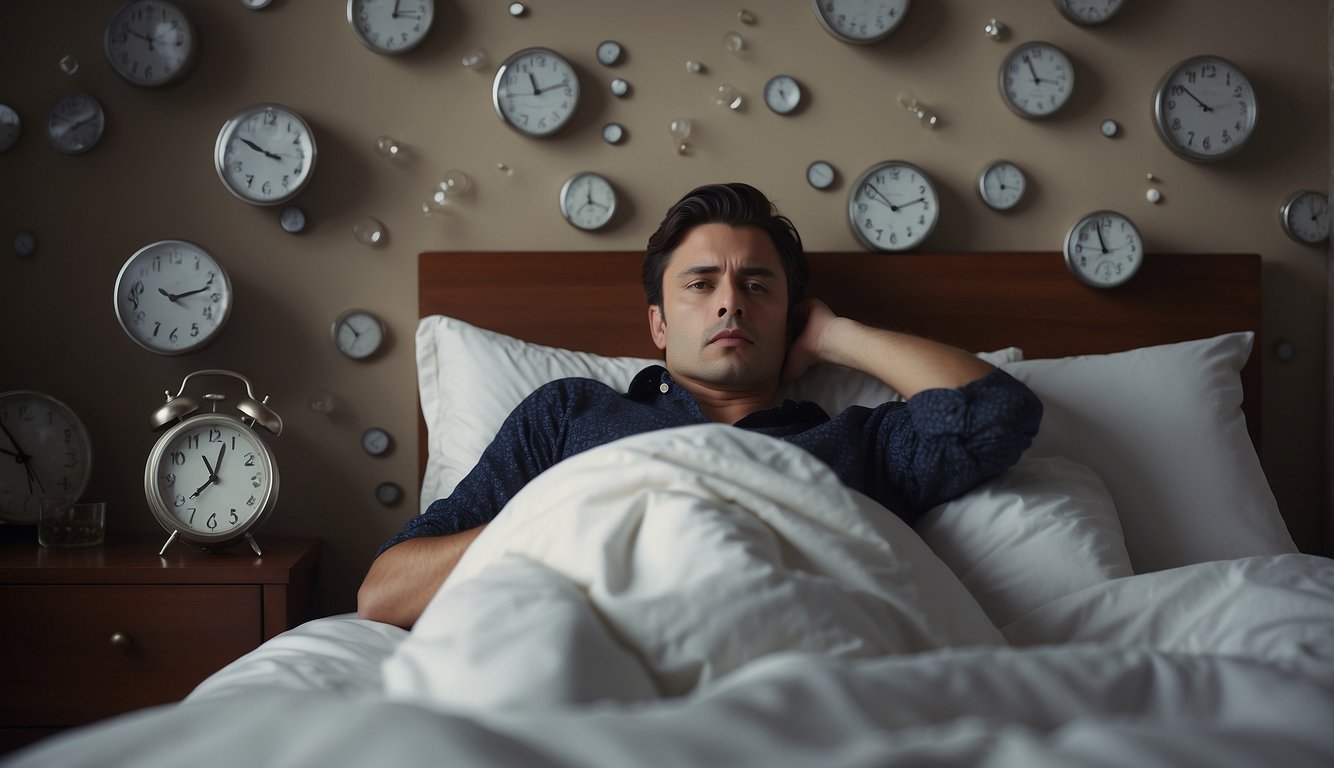
As someone who has struggled with insomnia and sleep disorders, I understand how important it is to identify symptoms and receive a proper diagnosis. There are a variety of symptoms that can indicate the presence of a sleep disorder, and it’s important to pay attention to them in order to receive the appropriate treatment.
Identifying Symptoms
The most common symptoms of sleep disorders include sleepiness, fatigue, and daytime sleepiness. If you find yourself feeling tired throughout the day, even after getting a full night’s sleep, it may be a sign that you have a sleep disorder. Other symptoms can include trouble falling asleep, staying asleep, or waking up too early. Sleep deprivation can also lead to a variety of symptoms, including irritability, difficulty concentrating, and decreased performance at work or school.
Diagnostic Tests and Assessments
If you are experiencing symptoms of a sleep disorder, it’s important to speak with your healthcare provider. They may recommend a variety of diagnostic tests and assessments to determine the cause of your symptoms. One commonly used assessment is the Pittsburgh Sleep Quality Index, which can help determine the quality of your sleep and identify any potential sleep disorders.
Another common diagnostic test is a sleep study, which can help identify sleep disorders such as sleep apnea or restless leg syndrome. During a sleep study, you will be monitored while you sleep to identify any abnormalities in your breathing or movement.
Overall, it’s important to pay attention to any symptoms you may be experiencing and seek medical attention if necessary. A proper diagnosis can help you receive the treatment you need to improve your sleep and overall quality of life.
Treatment and Management – Insomnia and Sleep Disorders

Insomnia and other sleep disorders can be treated and managed through a combination of pharmacological treatments, behavioral and psychological interventions, as well as lifestyle modifications and home remedies.
Pharmacological Treatments
Pharmacological treatments are medications that can help individuals with sleep disorders fall asleep and stay asleep. These medications include melatonin, eszopiclone, ramelteon, zaleplon, and suvorexant. It is important to note that these medications should only be used under the guidance of a healthcare professional, as they can have side effects and may interact with other medications.
Behavioral and Psychological Interventions – Insomnia and Sleep Disorders
Behavioral and psychological interventions are non-medication treatments that can help individuals with sleep disorders improve their sleep habits and patterns. Cognitive behavioral therapy (CBT) is a common form of therapy that can help individuals identify and change negative thoughts and behaviors that may be contributing to their sleep problems. Other behavioral and psychological interventions include relaxation techniques, sleep restriction therapy, and stimulus control therapy.
Lifestyle Modifications and Home Remedies
Lifestyle modifications and home remedies can also be effective in managing sleep disorders. Good sleep hygiene, such as avoiding caffeine and alcohol before bedtime, establishing a regular sleep schedule, and creating a relaxing sleep environment, can help improve sleep quality. Exercise and yoga can also be helpful in improving sleep quality and reducing stress. Additionally, there are supplements, such as valerian root and chamomile, that may help promote relaxation and improve sleep. However, it is important to consult with a healthcare professional before taking any supplements, as they can interact with other medications and have side effects.
Overall, it is important for individuals with sleep disorders to work with a healthcare professional to determine the best treatment options for their specific needs. With the right treatment and management, individuals with sleep disorders can improve their sleep quality and overall health.
Impact on Health and Quality of Life – Insomnia and Sleep Disorders
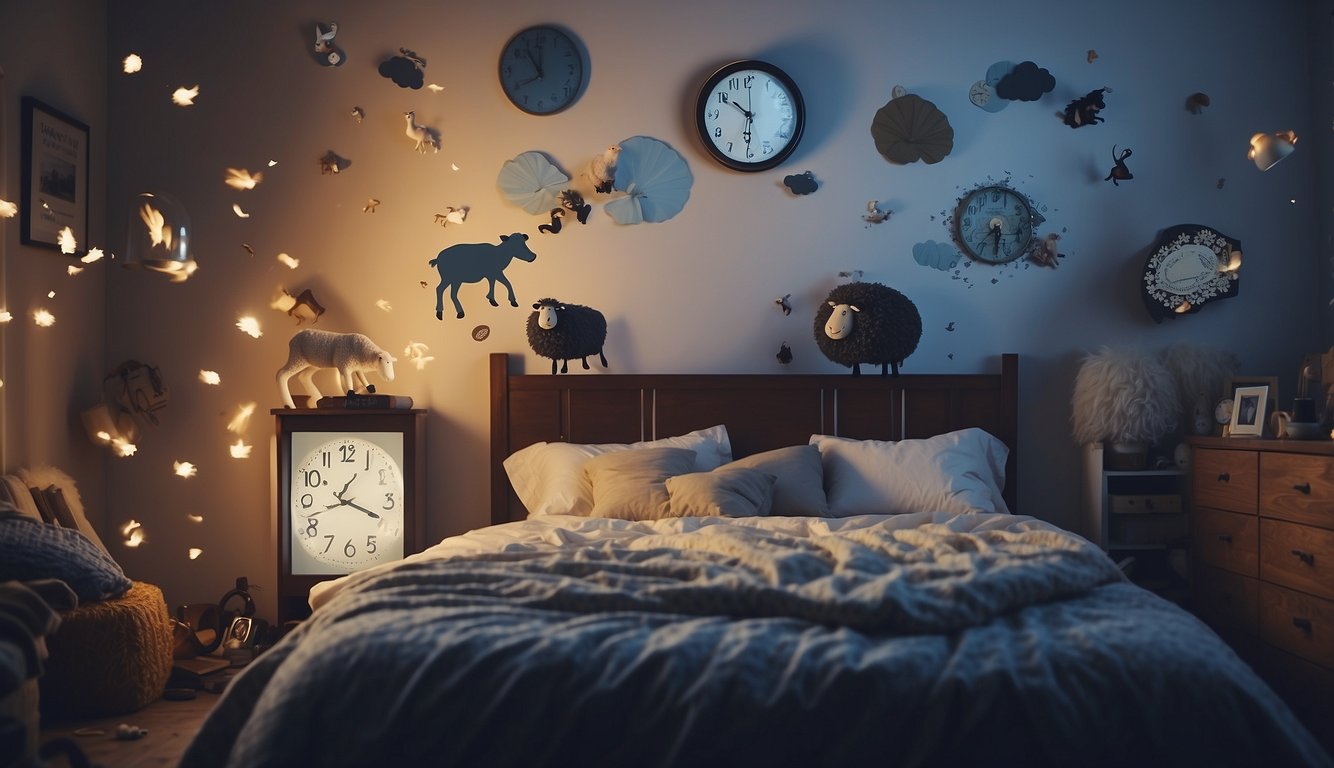
Insomnia and sleep disorders can have a significant impact on an individual’s health and overall quality of life. In this section, I will discuss some of the physical, mental, emotional, and social effects of sleep disorders.
Physical Health Complications – Insomnia and Sleep Disorders
Sleep disorders can lead to a range of physical health complications. Chronic sleep deprivation can increase the risk of developing conditions such as diabetes, heart disease, and obesity. Lack of sleep has also been linked to chronic pain and inflammation. Additionally, sleep disorders can weaken the immune system, making it more difficult for the body to fight off infections and illnesses.
Mental and Emotional Well-being
Sleep is essential for maintaining good mental and emotional health. Sleep disorders can cause mood disturbances, such as irritability, anxiety, and depression. Insomnia and other sleep disorders can also exacerbate existing mental health disorders, such as bipolar disorder and schizophrenia. Lack of sleep can also impair cognitive function, including memory, attention, and decision-making abilities.
Social and Occupational Effects
Sleep disorders can also have a significant impact on an individual’s social and occupational life. Chronic sleep deprivation can lead to decreased productivity, increased absenteeism, and impaired job performance. It can also affect personal relationships, causing irritability, moodiness, and social withdrawal. Sleep disorders can also lead to an increased risk of accidents and injuries, particularly in the workplace.
Sleep disorders can have a profound impact on an individual’s health and overall quality of life. It is essential to seek treatment if you are experiencing symptoms of a sleep disorder, such as difficulty falling asleep or staying asleep, excessive daytime sleepiness, or snoring. With proper diagnosis and treatment, many sleep disorders can be effectively managed, leading to improved physical and mental health, and overall well-being.
Prevention and Proactive Measures – Insomnia and Sleep Disorders
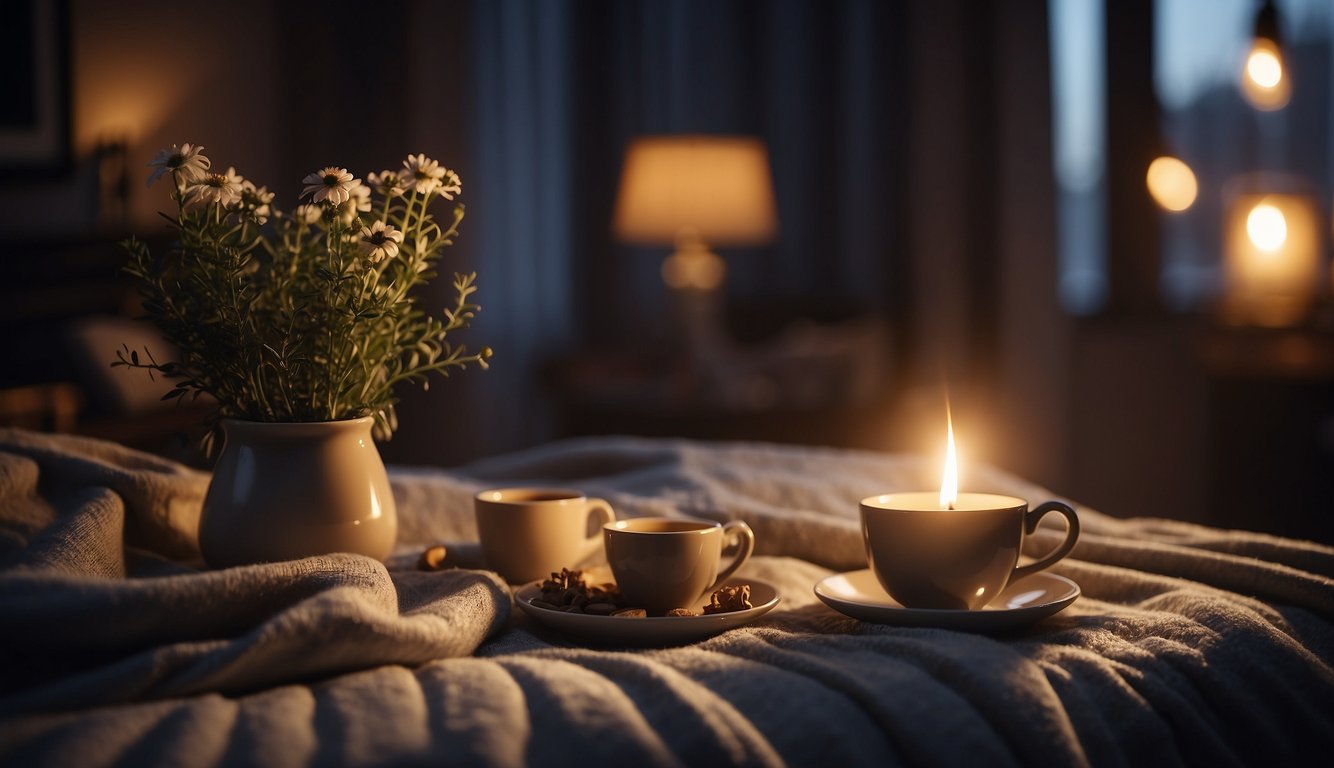
Insomnia and sleep disorders can be debilitating, but there are steps you can take to prevent them. In this section, I will discuss two areas that you can focus on to improve your sleep: developing healthy sleep habits and addressing potential risk factors.
Developing Healthy Sleep Habits
Developing healthy sleep habits is essential to getting a good night’s rest. Here are some tips to help you establish a healthy sleep routine:
- Stick to a sleep schedule: Try to go to bed and wake up at the same time every day, even on weekends.
- Create a relaxing bedtime routine: Take a warm bath, read a book, or listen to soothing music before bed to help you wind down.
- Make sure your sleep environment is comfortable: Keep your bedroom cool, dark, and quiet to create a relaxing atmosphere.
- Limit electronics before bed: The blue light emitted by electronic devices can interfere with your sleep. Try to avoid using electronics for at least an hour before bed.
- Avoid caffeine and alcohol: Caffeine and alcohol can both interfere with your sleep, so it’s best to avoid them before bedtime.
Addressing Potential Risk Factors
There are several potential risk factors that can contribute to insomnia and sleep disorders. Here are some steps you can take to address these risk factors:
- Address any health problems: Certain health problems, such as chronic pain, can interfere with your sleep. Talk to your doctor about any health problems that may be affecting your sleep.
- Make your bedroom safe: Make sure your bedroom is free of hazards that could cause injury, such as loose rugs or cords. If you have trouble getting in and out of bed, consider installing safety rails.
- Address lifestyle factors: Certain lifestyle factors, such as stress and anxiety, can interfere with your sleep. Consider talking to a therapist or counselor to address any underlying issues that may be affecting your sleep.
- Stick to a regular exercise routine: Exercise can help improve your sleep, but it’s important to stick to a regular routine. Try to exercise at the same time every day, and avoid exercising too close to bedtime.
By developing healthy sleep habits and addressing potential risk factors, you can improve your sleep and reduce the risk of insomnia and sleep disorders.
Special Considerations – Insomnia and Sleep Disorders
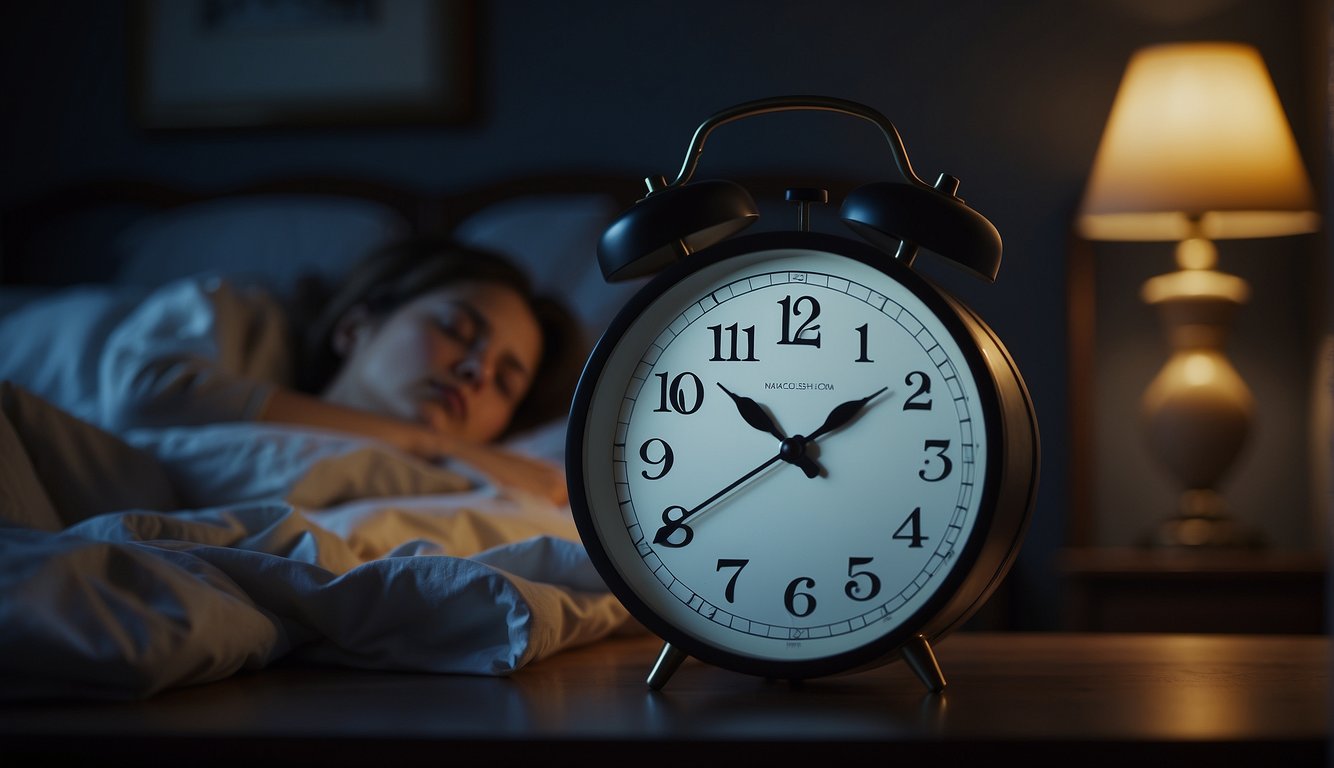
As with any medical condition, there are special considerations to take into account when dealing with insomnia and sleep disorders. Here are some important things to keep in mind:
Insomnia in Children and Teenagers
Insomnia is not just a problem for adults. Children and teenagers can also suffer from insomnia, which can have a significant impact on their daily lives. Some common causes of insomnia in children and teenagers include anxiety, stress, and changes in their sleep patterns. It’s important to address these issues early on to prevent them from becoming chronic problems.
Sleep Disorders During Pregnancy – Insomnia and Sleep Disorders
Pregnancy can be a challenging time for many women, and sleep disorders can add to the difficulty. Some common sleep disorders during pregnancy include sleep apnea, restless leg syndrome, and insomnia. These disorders can have a negative impact on both the mother and the baby, so it’s important to seek treatment if necessary.
Aging and Sleep Patterns
As we age, our sleep patterns tend to change. Older adults may have trouble falling asleep or staying asleep, and they may wake up earlier than they used to. This can be due to a variety of factors, including changes in our bodies and medications we may be taking. It’s important to address any sleep problems early on to prevent them from becoming chronic issues.
Overall, there are many factors to consider when dealing with insomnia and sleep disorders. By understanding these special considerations, we can better address these issues and improve our overall health and well-being.
Support and Resources – Insomnia and Sleep Disorders

As someone who struggles with insomnia or other sleep disorders, it’s important to know that you are not alone. There are many resources available to help you manage your condition and improve your sleep. In this section, I will discuss some of the support and resources that may be helpful for you.
Finding a Sleep Specialist – Insomnia and Sleep Disorders
If you are struggling with insomnia or other sleep disorders, it may be helpful to see a sleep specialist. A sleep specialist is a healthcare professional who specializes in the diagnosis and treatment of sleep disorders. They can help you identify the underlying causes of your sleep problems and develop a treatment plan that is tailored to your specific needs.
You can find a sleep specialist by asking your primary care professional for a referral or by searching online for a sleep center near you. The Mayo Clinic website is a great resource for finding sleep centers in your area.
Support Groups and Counseling
In addition to seeing a sleep specialist, you may also benefit from joining a support group or seeking counseling. Support groups can provide a safe and supportive environment where you can connect with others who are going through similar experiences. Counseling can help you address any underlying emotional or psychological issues that may be contributing to your sleep problems.
You can find support groups and counseling services through your healthcare provider, local community centers, or online. Life events such as divorce can also contribute to sleep problems, and it may be helpful to seek support from a therapist or support group during these times.
Overall, there are many resources available to help you manage your insomnia or other sleep disorders. By seeking out the support and resources that are available, you can take an active role in improving your sleep and overall health.
Insomnia and Sleep Disorders: A Herbal Perspective with TheHerbProf.com
Hello, wellness warriors! Today, we’re diving into the world of Insomnia and Sleep Disorders. These nighttime nuisances can rob us of our rest, but don’t worry, we’ve got herbal solutions!
First up, Chamomile. This calming herb is a natural sleep aid. And guess what? TheHerbProf.com has a detailed guide on growing and using chamomile. It’s like having a personal sleep consultant!
Next, the Valerian Root. Known for its sedative properties, it’s a heavyweight in the fight against insomnia. And TheHerbProf.com? It’s got all the info you need to harness the power of valerian. It’s a dream come true!
Then there’s the Lavender. Just a whiff of this fragrant herb can help soothe the mind and promote sleep. And with TheHerbProf.com, you’ve got a guide to growing your own lavender. It’s like a DIY project for your garden!
In short, tackling Insomnia and Sleep Disorders with herbs and TheHerbProf.com are a match made in dreamland. They offer a blend of practical gardening advice and fascinating plant facts. So, whether you’re a restless sleeper or a curious visitor, there’s always something new to learn!
Remember, folks, a good night’s sleep is just a garden away. Keep exploring TheHerbProf.com for more herbal adventures!
References – Insomnia and Sleep Disorders
Little Herb Encyclopedia, by Jack Ritchason; N.D., Woodland Publishing Incorporated, 1995
The Ultimate Healing System, Course Manual, Copyright 1985, Don Lepore
Planetary Herbology, Michael Tierra, C.A., N.D., Lotus Press, 1988
Handbook of Medicinal Herbs, by James A. Duke, Pub. CRP Second Edition 2007
The Complete Medicinal Herbal, by Penelope Ody, Published by Dorling Kindersley
Check the Following Articles!
Where Do Brussels Sprouts Grow Best?
Winter Greenhouse DIY: Tips for Building Your One
Planting Tomatoes Sideways: Maximizing Space and Yield
Planting Seeds Indoors in Winter: Tips & Tricks
Frequently Asked Questions – Insomnia and Sleep Disorders

What are the most effective treatments for insomnia?
There are various treatments for insomnia depending on the severity of the condition. The most common treatment options include cognitive-behavioral therapy (CBT), sleep hygiene practices, and medication. CBT is a type of talk therapy that can help you identify and change negative thoughts and behaviors that are affecting your sleep. Sleep hygiene practices involve developing healthy sleep habits such as avoiding caffeine and alcohol before bedtime, establishing a regular sleep schedule, and creating a comfortable sleep environment. Medication may be prescribed for short-term relief of insomnia, but it is not recommended for long-term use.
What are the common symptoms indicating chronic insomnia?
Chronic insomnia is characterized by difficulty falling asleep, staying asleep, or waking up too early for at least three nights a week for three months or more. Common symptoms of chronic insomnia include daytime fatigue, irritability, difficulty concentrating, and decreased performance at work or school. If you experience these symptoms, it is important to consult a healthcare professional for proper diagnosis and treatment.
How can insomnia differ among males and females?
Insomnia affects both males and females, but studies have shown that women are more likely to experience insomnia than men. Women may experience insomnia during pregnancy or menopause due to hormonal changes. Additionally, women may be more susceptible to stress and anxiety, which can contribute to insomnia.
What are the different types of sleep disorders?
There are several types of sleep disorders, including insomnia, sleep apnea, restless legs syndrome, and narcolepsy. Insomnia is the most common sleep disorder and is characterized by difficulty falling asleep, staying asleep, or waking up too early. Sleep apnea is a condition where breathing repeatedly stops and starts during sleep. Restless legs syndrome is a neurological disorder that causes an uncomfortable sensation in the legs, which can disrupt sleep. Narcolepsy is a chronic sleep disorder that causes excessive daytime sleepiness and sudden sleep attacks.
Can a mental health condition be the cause of insomnia?
Yes, mental health conditions such as anxiety and depression can contribute to insomnia. Stressful life events or trauma can also lead to insomnia. It is important to address any underlying mental health conditions to effectively treat insomnia.
Is it possible for insomnia to resolve on its own over time?
In some cases, insomnia may resolve on its own over time. However, chronic insomnia may require treatment to improve sleep quality and overall health. It is important to consult a healthcare professional if you experience ongoing sleep difficulties.
